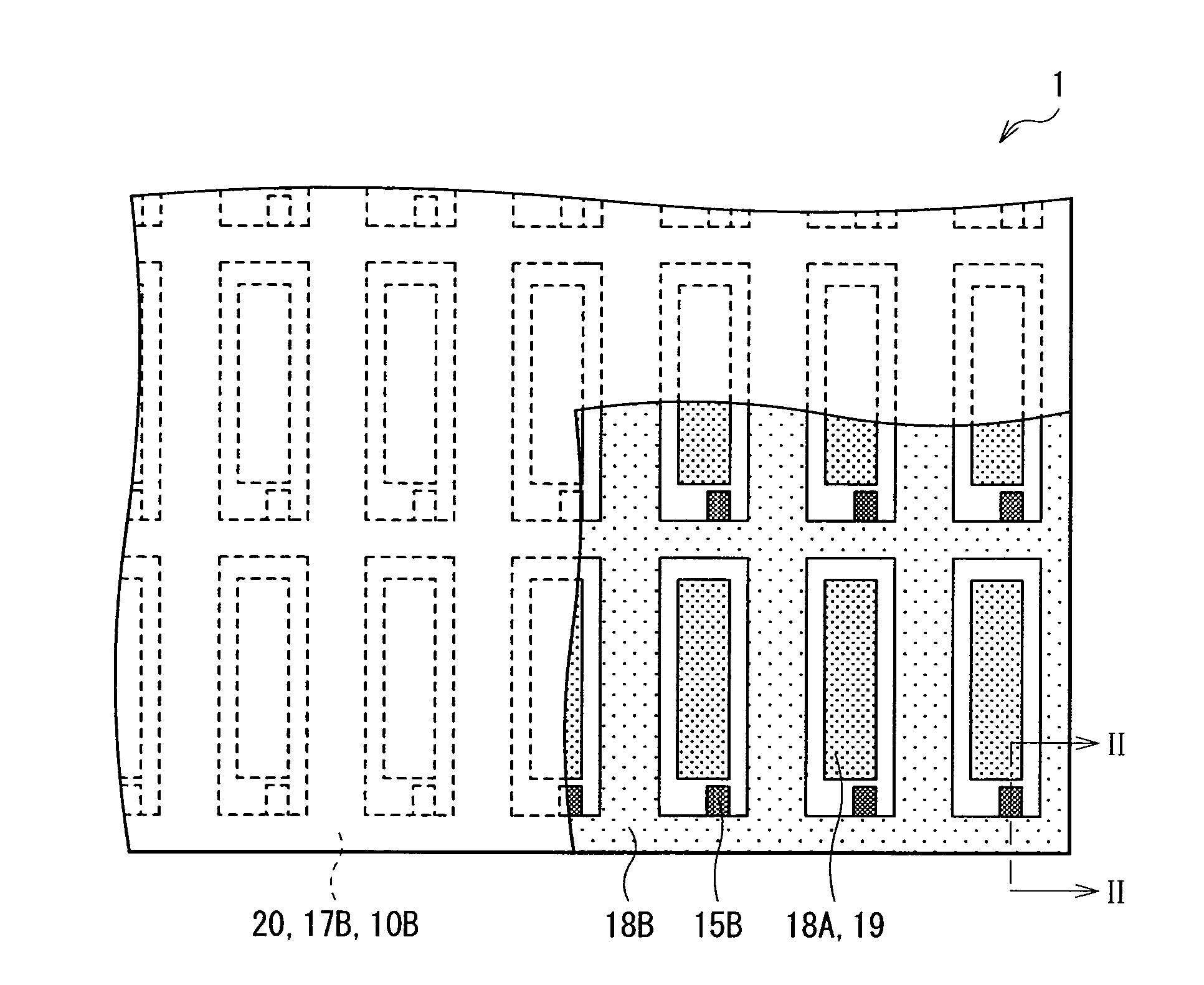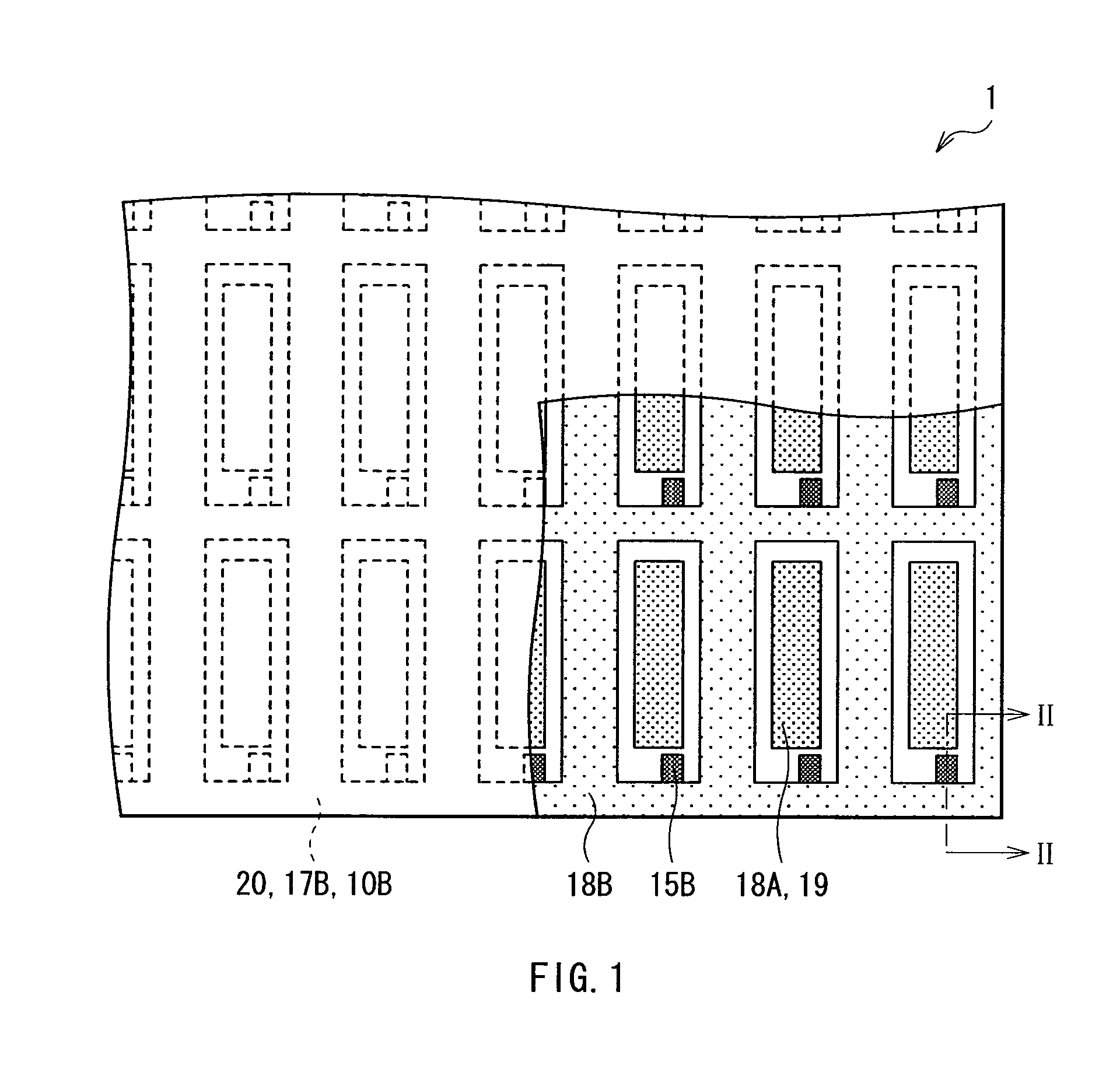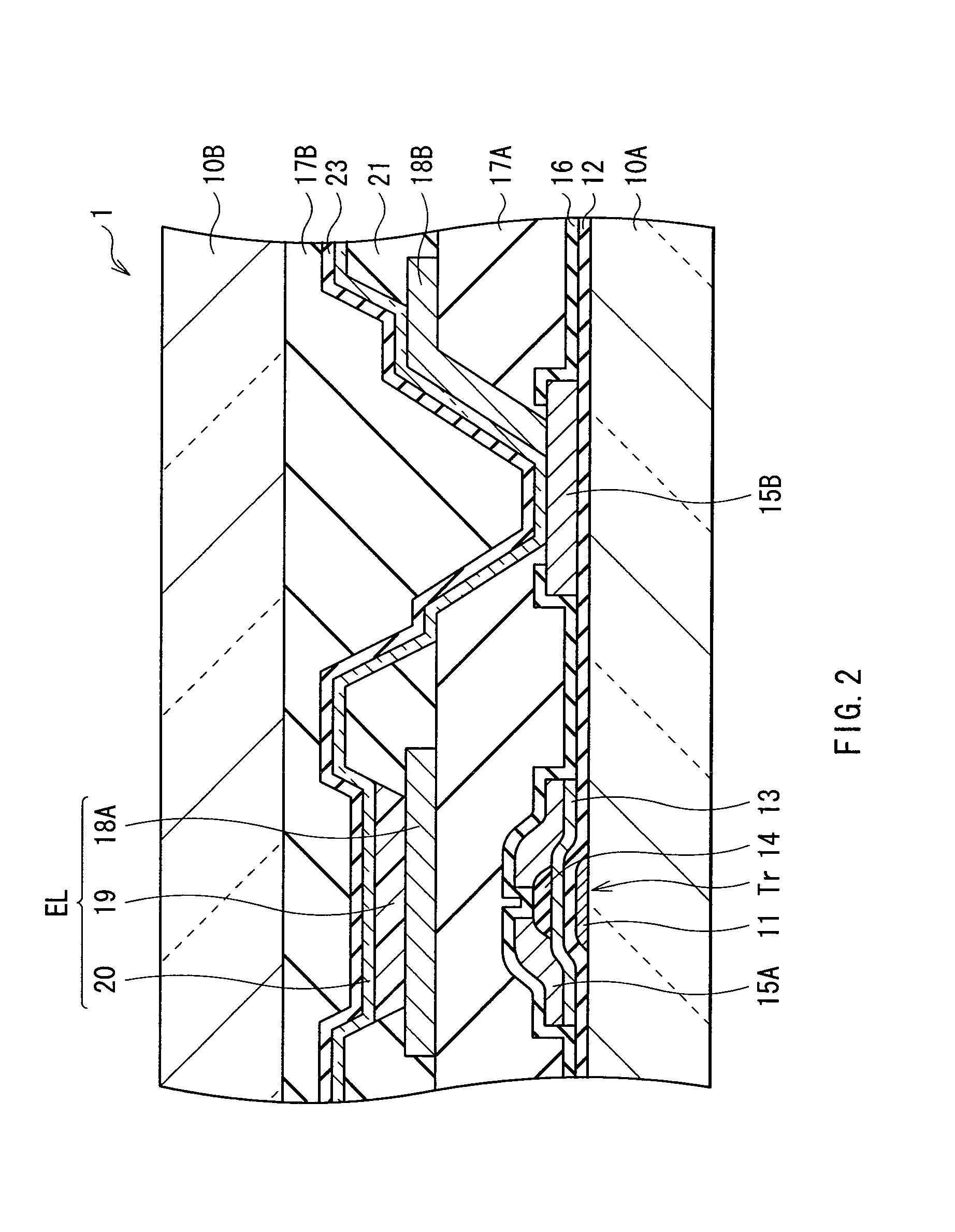Light-emitting display and method of manufacturing the same
a technology of light-emitting display and top-emitting system, which is applied in the manufacture of electrode systems, electric discharge tubes/lamps, and discharge tubes luminescnet screens, etc., can solve the problems of large voltage drop in this part, easy oxidation of the surface of auxiliary wiring, and increased power consumption of displays, so as to prevent the increase of connection resistance and improve the effect of display quality and low power consumption
- Summary
- Abstract
- Description
- Claims
- Application Information
AI Technical Summary
Benefits of technology
Problems solved by technology
Method used
Image
Examples
first embodiment
[0038]FIGS. 1 and 2 show the configuration of a light-emitting display (an organic EL display 1) according to a first embodiment of the invention, and
[0039]FIG. 1 shows a plan configuration and FIG. 2 shows a sectional configuration taken along a line II-II of FIG. 1.
[0040]The organic EL display 1 has a laminate configuration in which a multilayer film is laminated between a pair of insulating transparent substrates 10A and 10B. More specifically, a gate electrode 11, a gate insulating film 12, a silicon film 13, a stopper insulating film 14 and a wiring layer 15A are laminated from the transparent substrate 10A side to constitute a thin film transistor Tr. Moreover, a passivation insulating film 16 and a planarization insulating film 17A are laminated on the thin film transistor Tr. On the planarization insulating film 17A, an organic EL element EL is formed corresponding to a region where the thin film transistor Tr is formed.
[0041]Each organic EL element EL has a laminate configu...
second embodiment
[0077]Next, a light-emitting display according to a second embodiment of the invention will be described below. In addition, like components are denoted by like numerals as of the first embodiment and will not be further described.
[0078]FIG. 9 shows a sectional configuration of the light-emitting display (an organic EL display 2) according to the embodiment. In the organic EL display 2, a contact section 22A is formed in the same layer as the first electrode 18A and an auxiliary wiring 18C instead of the same layer as the wiring layer 15A. However, the contact section 22A is made of a different material from the materials of the first electrode 18A and the auxiliary wiring 18C. More specifically, as the contact section 22A, such a material that its selectivity is increased at the time of etching the first electrode 18A and the auxiliary wiring 18C is used. Then, as in the case of the first embodiment, the second electrode 20 and the auxiliary wiring 18C are connected to each other t...
third embodiment
[0088]Next, a light-emitting display according to a third embodiment of the invention will be described below. In addition, like components are denoted by like numerals as of the first and second embodiments and will not be further described.
[0089]FIG. 14 shows a sectional configuration of the light-emitting display (an organic EL display 3) according to the embodiment. In the organic EL display 3, the wiring layer 15A and the contact section 15B are a multilayer film in which layers 15A1, 15A2 and 15A3 are laminated in order from the transparent substrate 10A side and a multilayer film in which layers 15B1, 15B2 and 15B3 are laminated in order from the transparent substrate 10A side, respectively. At least an uppermost layer (for example, the layer 15A3 or 15A2 or the layer 15B3 or 15B2) of each of the multilayer films is made of such a material (for example, Mo or Al) that its selectivity is reduced at the time of etching the first electrode 18A and the auxiliary wiring 18B (low e...
PUM
 Login to View More
Login to View More Abstract
Description
Claims
Application Information
 Login to View More
Login to View More - R&D
- Intellectual Property
- Life Sciences
- Materials
- Tech Scout
- Unparalleled Data Quality
- Higher Quality Content
- 60% Fewer Hallucinations
Browse by: Latest US Patents, China's latest patents, Technical Efficacy Thesaurus, Application Domain, Technology Topic, Popular Technical Reports.
© 2025 PatSnap. All rights reserved.Legal|Privacy policy|Modern Slavery Act Transparency Statement|Sitemap|About US| Contact US: help@patsnap.com



